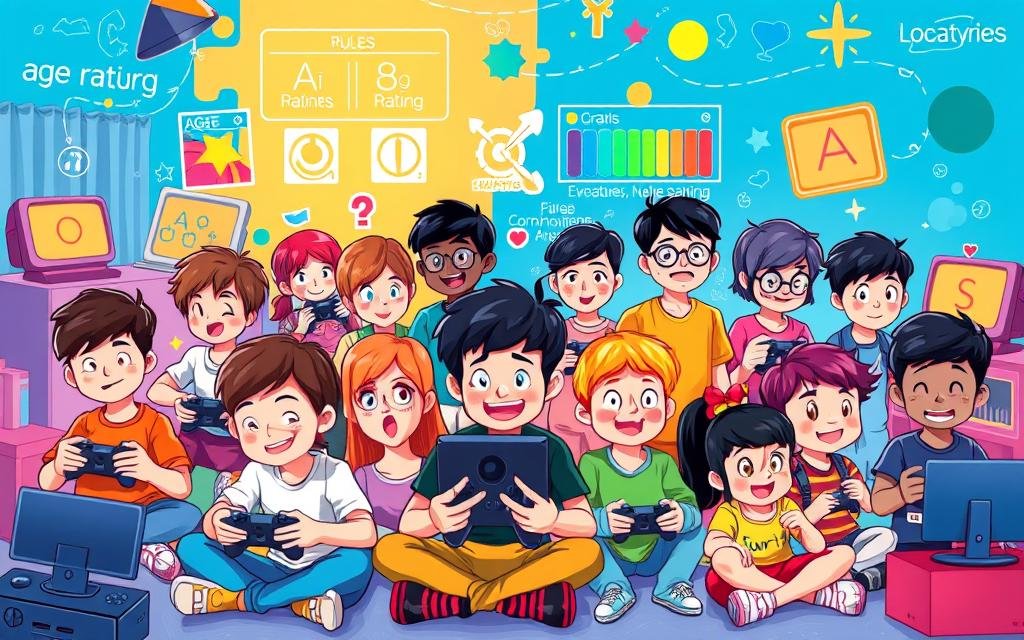Legal Age to Play: Know the Rules Before You Game
In the dynamic world of gaming, navigating the complexities of age restrictions can be a critical step in ensuring a safe and enjoyable experience. Whether you’re a seasoned gamer or just starting your journey, understanding the legal age requirements for various games is essential. This article will delve into the importance of age ratings, explore regional differences, and shed light on the consequences of violating these guidelines, empowering you to make informed decisions and embrace the gaming landscape responsibly.
From the thrilling adventures of first-person shooters to the captivating kingparis44 narratives of role-playing games, the gaming industry caters to a diverse audience. However, not all games are created equal in terms of age-appropriateness. Developers and regulatory bodies have established comprehensive rating systems to ensure that content is aligned with the cognitive and emotional maturity of the target audience. By familiarizing yourself with these systems, you can navigate the gaming world with confidence, safeguarding your enjoyment and well-being.
Understanding Age Restrictions for Video Games
When it comes to video games, age restrictions are essential safeguards to ensure appropriate content and experiences for players. These video game age ratings vary widely across different regions, with each country or territory having its own set of guidelines and regulations. Understanding these game age limits by region is crucial for both gamers and parents to make informed decisions.
Exploring Regional Differences in Age Ratings
The most widely recognized video game rating system is the Entertainment Software Rating Board (ESRB) in the United States, which assigns age-appropriate labels such as “E” for Everyone, “T” for Teen, and “M” for Mature. However, other regions like Europe and Asia have their own rating systems, such as PEGI in Europe and CERO in Japan, each with their unique age classifications and content descriptors.
Consequences of Violating Age Rating Guidelines
Disregarding these video game age ratings and consequences of underage gaming can have serious consequences. Minors who access games intended for older audiences may be exposed to content that is inappropriate for their age, potentially leading to developmental issues or even legal repercussions in some cases. Additionally, many digital game stores and platforms may restrict access or impose penalties for those who attempt to purchase or play games beyond their recommended age limits.
The Legal Age to Play: Navigating Game Rating Systems
Navigating the world of video game age requirements can be a daunting task for both players and parents. However, understanding the various game rating systems is crucial to ensuring a safe and appropriate gaming experience. From the Entertainment Software Rating Board (ESRB) in the United States to the Pan European Game Information (PEGI) system in Europe, these rating frameworks provide a clear roadmap for the legal age to play different types of games.
The game rating systems evaluate video games based on factors such as content, themes, and recommended age groups. These ratings often range from “Early Childhood” to “Adults Only,” with each category indicating the appropriate legal age to play the game. By familiarizing themselves with these understanding game age requirements, players and parents can make informed decisions about the legal age to play games that align with personal preferences and local regulations.
It’s important to note that the specific game rating systems and legal age to play games may vary across different regions and jurisdictions. Gamers and guardians should research the applicable rating guidelines in their local area to ensure they are complying with the law and providing a safe gaming environment for all.
Parental Guidance: Ensuring Safe and Appropriate Gaming
As the digital landscape continues to evolve, it is crucial for parents to take an active role in guiding their children’s gaming experiences. By fostering a safe and responsible approach to gaming, parents can ensure that their kids derive maximum benefits from this form of entertainment while minimizing potential risks.
One of the key strategies for ensuring safe and age-appropriate gaming is to familiarize yourself with the game rating systems. Thoroughly researching the content and age recommendations for various titles can help you make informed decisions about which games are suitable for your child’s developmental stage. This not only protects your child from exposure to inappropriate content but also fosters a deeper understanding of the gaming world.
Additionally, establishing clear boundaries and guidelines for gaming time is essential. By setting reasonable limits on daily or weekly gaming sessions, you can help your child maintain a healthy balance between gaming and other important activities, such as schoolwork, physical exercise, and social interactions. Regular communication with your child about their gaming habits and interests can also help build trust and ensure that you’re both on the same page.

